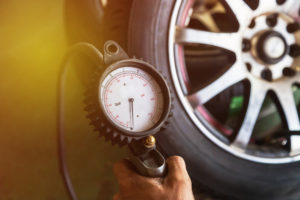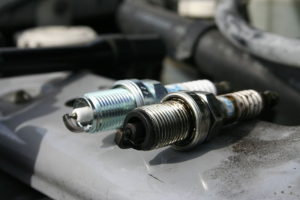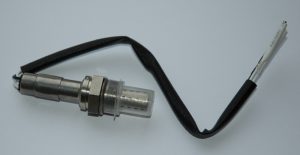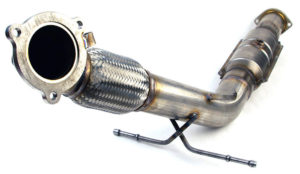As the only thing between your car and the road, the tires carry quite a bit of pressure. With the amount of rotations they go through to the amount of air normally lost due to how often you drive, a lot can happen to cause excessive wear and tear on your tires. Keep reading to learn more about three of the basic tire maintenance steps every driver should know.

Check Tire Pressure
To ensure your gas mileage stays in a healthy range and you remain safe on the road, always check and fill your tire pressure. A car’s tires naturally lose about 1-2 psi every month which means continued neglect will result in a dangerous blow-out. Don’t risk your safety and the safety of others while on the road and check your tire pressure periodically.
Rotate Your Tires
Most mechanics recommend rotating your tires every 5-7,000 miles. This is due to the amount of wear most front wheel drive cars experience on their tires. By rotating your front tires to the rear and vice versa you will ensure an even better tread wear on your vehicle. Periodically rotating your tires will also allow you to maintain a good gas mileage. Not taking proper care of your vehicle’s tires will drastically reduce the gas mileage and performance of your car.

Perform a Visual Inspection
Visual inspections of your tires are a handy way to ensure the tread is still within safety limits. While it is never a good sign that you can tell your tires are going flat, simply taking the time to inspect them will allow you to address any issues. Performing a visual inspection of your tires is an excellent way to spot any cuts or bulges on them.
Thoughts
From simply checking the tire pressure to using proper tire rotation schedules and even visual inspections, you will be able to keep a proper eye on your tire’s wear and tear. Be sure to call on the team at Mike’s Brake & Alignment Shop for all of your vehicle needs. Call us today to schedule an exceptional tire service!




